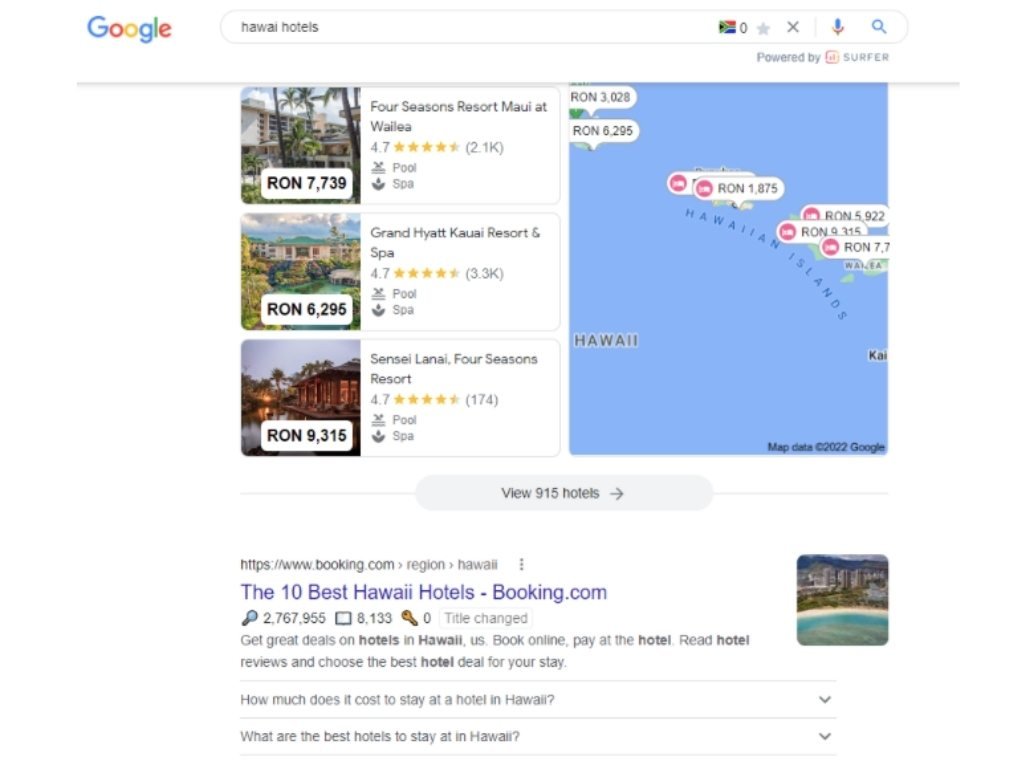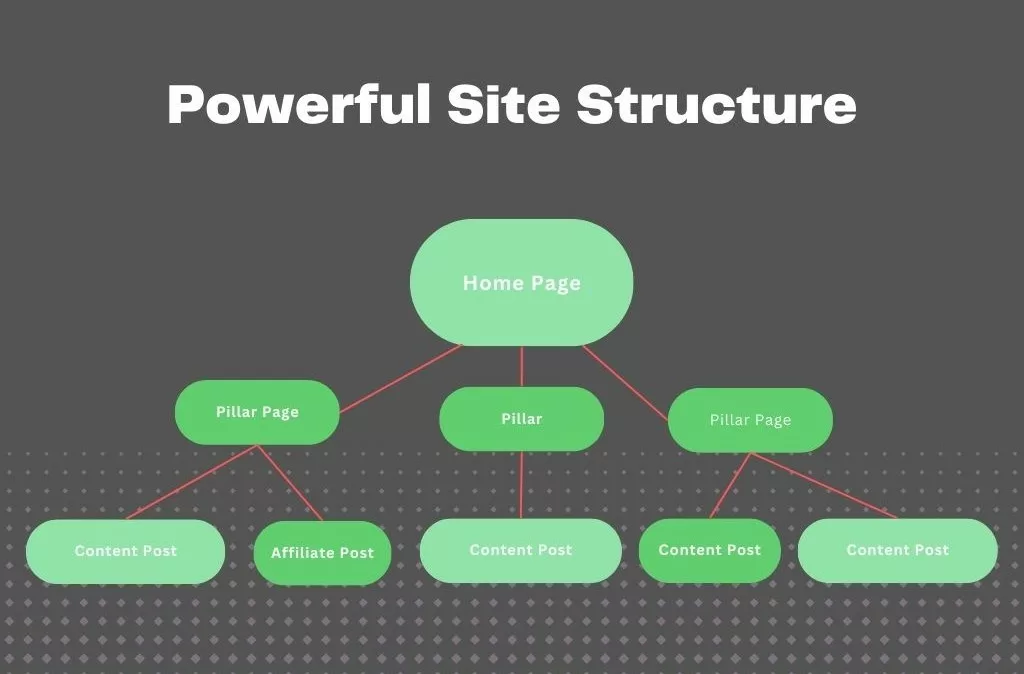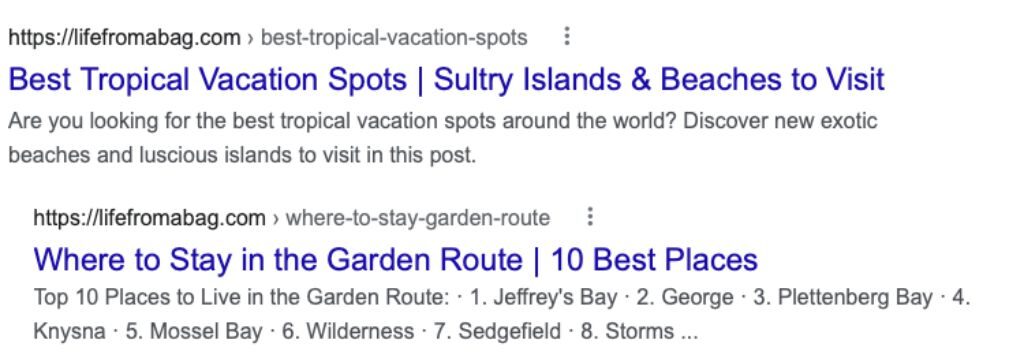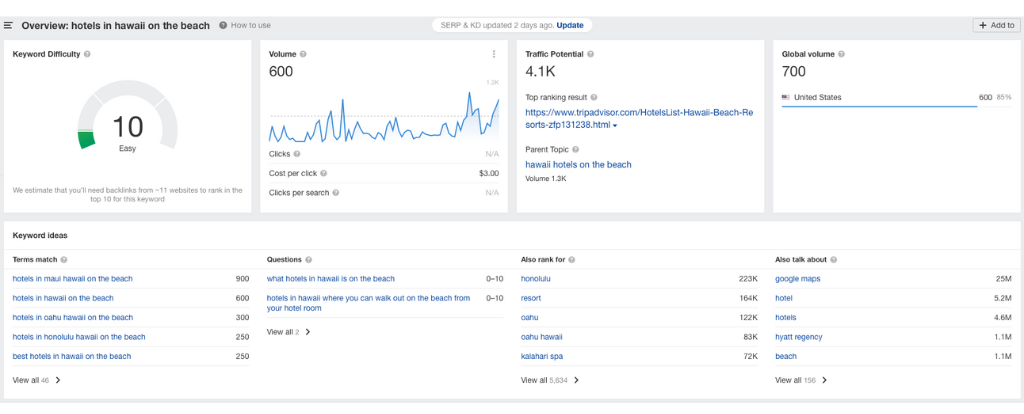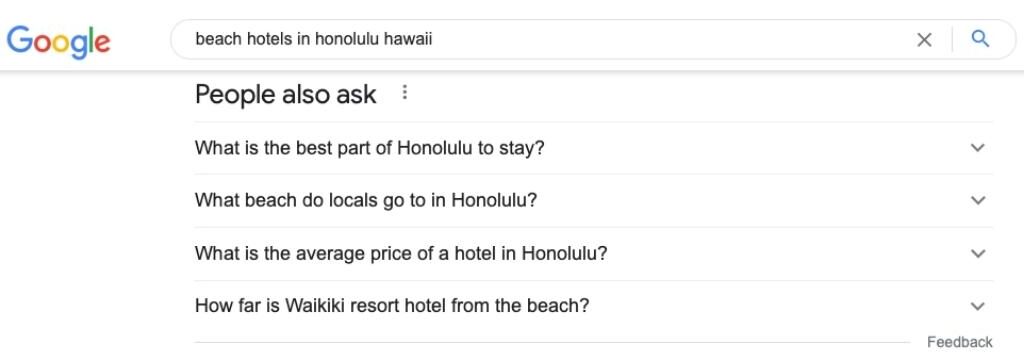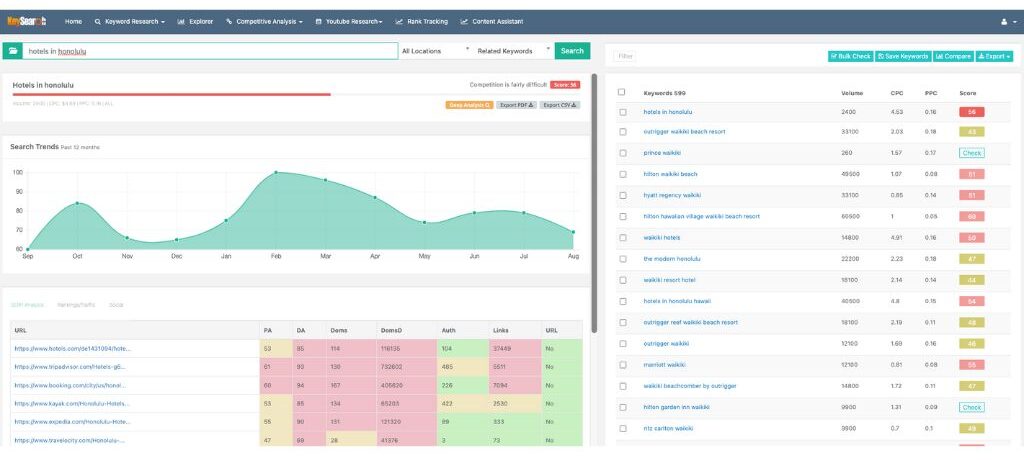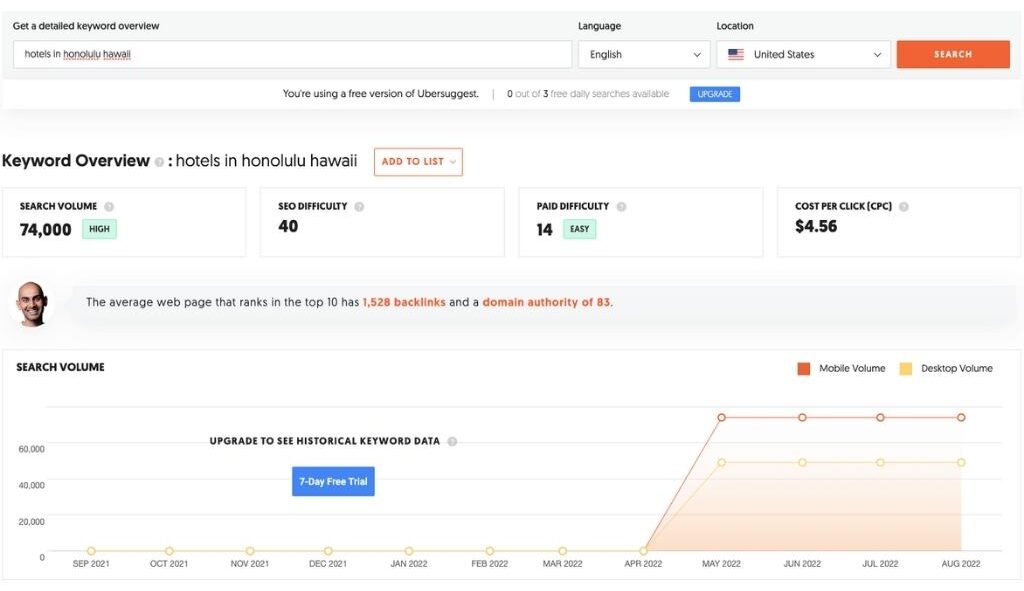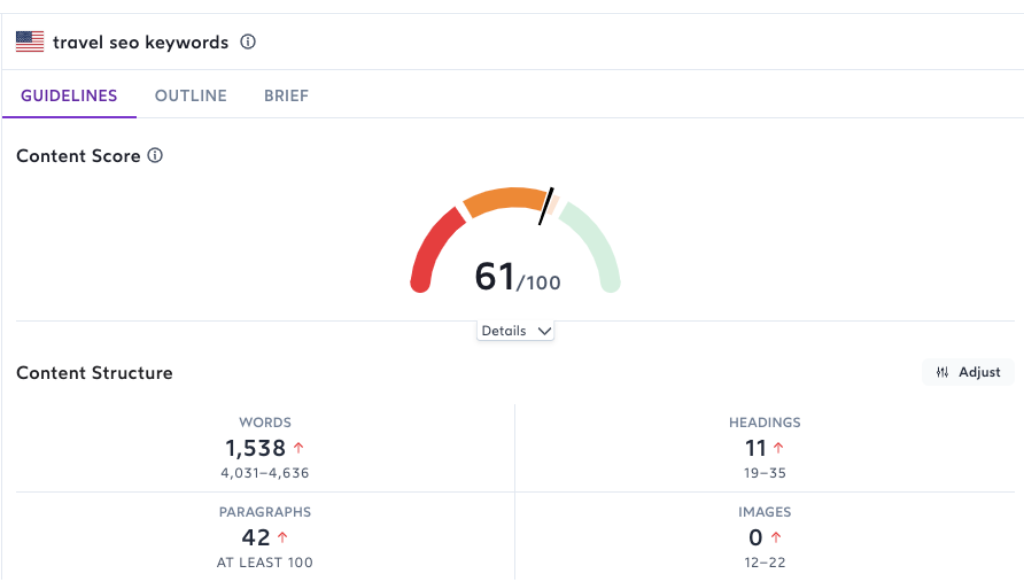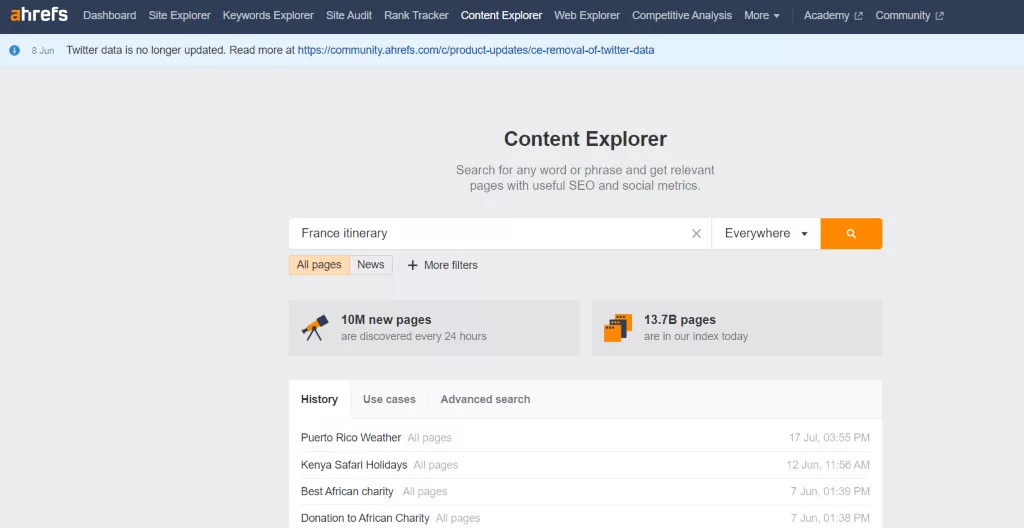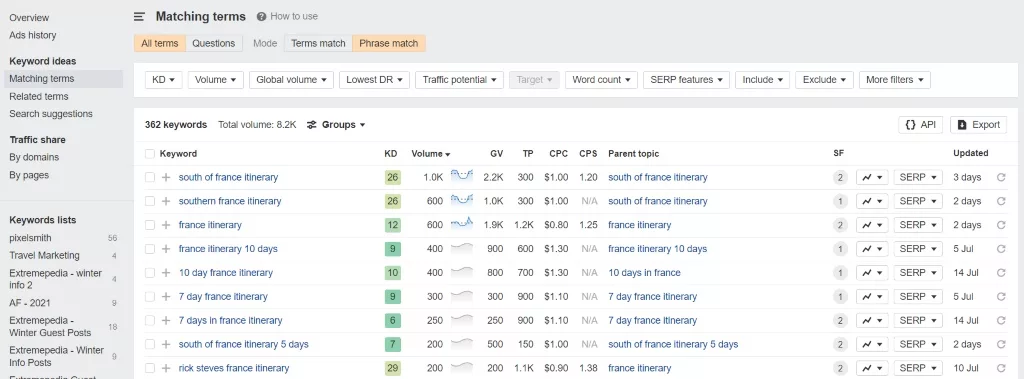Unlock the power of travel keywords with our expert guide. Explore top tips for finding the best hotels, attractions, and destinations. Plan your next adventure with confidence using our comprehensive insights and strategies
In this Article you will find:
Introduction:
In the vast landscape of online travel, success often hinges on the right Travel Keywords to elevate your website’s visibility. In this post, we’ll journey through six essential places where you can unearth impactful travel keywords to enhance your SEO strategy.
Explore how Travel Keywords research differs from traditional SEO methods and why it holds immense significance for websites centered around travel and exploration. Neglecting keywords can lead to misguided targeting and wasted resources. If your goal is to secure a prime spot on the first page of Google for relevant travel-related searches, then this post is a must-read!
Tip: Seeking assistance with your travel keywords? Discover our tailored SEO keyword services designed to elevate your travel website’s performance.
Understanding SEO Travel Keywords
Travel SEO keywords are the building blocks of your website’s visibility on search engines. They comprise the words, phrases, or queries that users input when searching for travel-related information online. Incorporating these keywords into your content is fundamental to any effective SEO strategy for a travel website or blog, as they guide the direction of your content creation efforts.
For instance, imagine your target audience is searching for “where to stay in Hawaii.” By strategically targeting this keyword, you can tailor your content to address the specific needs and interests of travelers seeking accommodation options in Hawaii. Ensuring that your content aligns with the intent behind these search queries is key to maximizing your website’s visibility and relevance in the competitive landscape of online travel.
Exploring SEO Travel Keywords
In the realm of SEO, travel keywords can be categorized into two main types: broad and long-tail keywords. Broad keywords, such as “hotels in Hawaii,” encompass a wide range of search queries and are often competitive, as they attract attention from various booking sites. These keywords may pose challenges in ranking due to their popularity and the presence of established competitors vying for visibility on the Search Engine Results Page (SERP).
Long-tail keywords offer a more targeted approach to SEO. These phrases are highly specific, often including modifiers that refine the search intent. For instance, “all-inclusive beach hotels in Honolulu, Hawaii” narrows down the search to a particular type of accommodation in a specific location.
These long-tail keywords are valuable because they are easier to rank for due to their specificity. They cater to the needs of users with distinct preferences, helping them find exactly what they’re looking for amidst the vast sea of travel-related content online. In an industry as competitive as travel, leveraging long-tail keywords can be a powerful strategy to stand out and attract relevant traffic to your website.
Maximizing Your Website’s Potential with a Travel Keywords Funnel Strategy
A keyword funnel strategy is a powerful tool for organizing and categorizing your content according to popular search terms used by users. While you may have your own set of targeted keywords, implementing a keyword funnel offers several benefits for your website.
Firstly, it helps streamline your content creation process by aligning it with the interests and preferences of your target audience. By identifying relevant keywords at different stages of the customer journey, you can tailor your content to address their specific needs and inquiries effectively.
Secondly, a keyword funnel enhances your website’s visibility and accessibility on search engines. By optimizing your content around relevant keywords, you increase the likelihood of appearing in search results for related queries, driving organic traffic to your site.
Moreover, a well-executed keyword funnel strategy enables you to track and analyze the performance of your content more effectively. By monitoring keyword trends and user engagement metrics, you can refine your content strategy to better meet the evolving needs and interests of your audience.
In essence, a keyword funnel strategy empowers you to create targeted, relevant, and engaging content that resonates with your audience and enhances your website’s overall performance in the digital landscape.
Enhancing Website Structure with a Keyword Funnel
One of the most significant advantages of implementing a keyword funnel strategy is its ability to provide structure to your website. By organizing your content around broad short-tail keywords, commonly referred to as pillar posts or category pages, you can create a cohesive web-like structure that guides visitors through your site.
For instance, consider a travel agency specializing in tour packages. If your website covers global travel and isn’t specific to any particular destination, creating category or niche pages for each major country serves as an excellent foundation. These pages act as pillars, anchoring your site’s structure and serving as entry points for visitors interested in exploring specific regions.
From these country-specific pages, you can then delve into more granular content, such as city or attraction-specific tours. By targeting high-volume and easy-to-rank keywords for each region, you optimize your content for search engines while offering valuable information to your audience.
This organized, web-like structure not only enhances your website’s SEO performance but also improves the overall user experience. Navigating through your site becomes seamless for your niche audience, ensuring they find the information they need with ease.
In essence, a keyword funnel strategy serves as the blueprint for structuring your website, guiding both visitors and search engines through a cohesive and informative journey.
Tip: If you have a website idea or want to restructure your current site, look no further. Check out our comprehensive website design services.
Uncovering High-Volume Keywords with a Keyword Funnel Strategy
Another significant advantage of employing a keyword funnel strategy is its ability to help you target high-volume, easy-to-rank keywords within your niche. But how does this strategy facilitate such outcomes?
Let’s consider a scenario where you’re searching for keywords to enhance your travel blog. Suppose you’ve extensively covered the topic of “Tropical vacations,” exploring various destinations under this niche. However, this doesn’t necessarily mean you’ve addressed all the top search queries related to the topic.
For instance, your audience might be interested in learning about the “Cheapest all-inclusive vacations in the Seychelles” or the “Best cruise tour operators in Bali.” These specific queries could represent easy-to-rank, high-traffic keywords that haven’t been thoroughly covered under the broader keyword “Tropical vacations.”
By implementing a keyword funnel strategy, you can identify and target these niche-specific keywords that resonate with your audience’s interests and preferences. Aligning your content creation efforts with such high-volume keywords allows you to capture valuable organic traffic and enhance your website’s visibility in search engine results.
With the right marketing strategy and a well-structured website, your site can gain a competitive edge and establish itself as a go-to resource within your niche.
Tip: Looking to elevate your SEO game? Explore our content marketing strategy services tailored to optimize your website’s performance and drive organic growth.
The Different Types of Searched Travel Keywords to Consider
You now know the difference between broad and long-tail keywords, but we can go another step further. When a search engine user types a keyword into the search bar, they are looking for something specific.
We can break these up into intent-specific keywords, which can help you know who you are targeting. These intentions can also help you identify the potential outcome.
Understanding Informational Intent
Informational intent encompasses users seeking to expand their knowledge on a specific topic. When targeting keywords with informational intent, your content should not only address the user’s search query but also offer supplementary resources or further reading material that may lead to monetization opportunities.
A systematic approach to content creation is essential in this regard. It’s crucial to ensure that your content comprehensively answers the user’s query to minimize bounce rates and foster user engagement.
Delivering high-quality, informative content establishes credibility and trust with your audience, encouraging them to explore your website further. This, in turn, increases the likelihood of guiding users towards monetization pages or other revenue-generating opportunities.
For example, consider a topic like “Best time to visit Greece.” A well-crafted informational post on this subject can internally link to related money-making posts, such as “Top accommodations in Athens,” offering users valuable insights while subtly guiding them towards potential revenue-generating pages.
By strategically aligning your content with the informational needs of your audience and integrating internal linking strategies, you can effectively leverage informational intent to drive engagement and optimize monetization opportunities on your website.
Navigational Intent
These are keywords that usually draw traffic directly to your site. In most cases, users with a navigational intent have developed a level of trust with the site and have become regular visitors.
In most cases, tour companies such as Get Your Guide and Viator receive visitors due to this keyword type. That said, if your informational content is high quality, you can easily increase visitors with navigational intent, as they may want your opinion on certain topics.
Understanding Commercial Intent
Commercial intent signifies users who are not only seeking valuable information but also demonstrating a readiness to engage in potential purchasing decisions. This search intent presents a lucrative opportunity to capitalize on monetization potential while delivering valuable content to users.
Travel companies and bloggers frequently target this user intent, as it offers mutual benefits for both the reader and the content creator. Users with commercial intent are often in the exploratory phase, actively seeking information to inform their purchasing decisions.
A prime example of this is the keyword “Best boat cruises in Athens.” By creating content that offers valuable insights into the top boat cruises in Athens, you can simultaneously cater to the user’s informational needs and strategically position bookable tours or related products for monetization.
This approach allows you to seamlessly integrate valuable information with monetization opportunities, providing users with a comprehensive and engaging experience while maximizing revenue potential for your website.
By strategically targeting keywords with commercial intent and offering relevant products or services, you can effectively monetize your content while delivering valuable insights to users in their purchasing journey.
Transactional Intent
This refers to the target keywords that users enter with the intention of purchasing something. Although this intent is fairly similar to commercial intent, however, the user already knows they would like to make a transaction.
A fantastic example of this might be a post on “Cheap flights from London to Cape Town” or “Affordable travel insurance packages”. While you can provide some relevant information, the user’s main goal of this keyword is to make a purchase.
Optimizing SEO Keywords for Travel and Tourism
Utilizing SEO keywords effectively is crucial for enhancing the visibility and relevance of your travel website or blog. Here’s how you can strategically incorporate keywords into your content:
- Title: Craft compelling titles that incorporate relevant SEO keywords. The title is the first thing users see in search engine results, so it should accurately reflect the content of your page while including targeted keywords. For example, a title like “Top 10 Must-Visit Destinations in Greece” effectively incorporates the keyword “must-visit destinations in Greece.”
- Meta Description: Write concise and informative meta descriptions that include your targeted keywords. Meta descriptions provide a brief summary of your page’s content and play a significant role in attracting clicks from search engine users. Ensure that your meta description accurately reflects the content of your page and entices users to click through. For instance, a meta description like “Discover the breathtaking beauty of Greece with our guide to the top destinations. From ancient ruins to pristine beaches, plan your dream Greek getaway today!” effectively incorporates keywords like “Greece” and “top destinations.”
- Content: Incorporate SEO keywords naturally throughout your content while maintaining readability and relevance. Avoid keyword stuffing and focus on providing valuable information to your audience. Integrate keywords into headings, subheadings, and body paragraphs to optimize your content for search engines. For example, if you’re writing a blog post about the best beaches in Hawaii, strategically include keywords like “best beaches in Hawaii,” “Hawaii beach guide,” and specific beach names throughout your content.
By strategically placing SEO keywords within titles, meta descriptions, and content, you can enhance the visibility and effectiveness of your travel website or blog in search engine results. This optimization ensures that your content reaches and resonates with your target audience, driving traffic and engagement to your site.
Crafting SEO-Friendly Titles for Travel Blogs
The page title plays a crucial role in conveying the essence of your website or blog posts to both users and search engines. Here are some tips for creating SEO-friendly titles that effectively capture attention and optimize visibility:
- Be Catchy and Compelling: Remember that humans ultimately decide whether to click on your title, so make it enticing and engaging. Incorporate language that sparks curiosity or promises valuable insights to entice users to click through.
- Include Target Keywords: Ensure that your target keyword appears prominently in your page title, preferably near the beginning. This signals to search engines the relevance of your content to specific search queries and improves your chances of ranking for those keywords.
- Optimize Length: Keep your page title concise and within the recommended length of 50 to 60 characters, or approximately 580 pixels. This ensures that your title displays effectively in search engine results without being truncated, maximizing its impact on users.
- Avoid Keyword Stuffing: While it’s essential to include your target keyword, avoid overusing it in your title, as this can be perceived as keyword stuffing by search engines. Aim for a natural integration of the keyword that enhances the readability and relevance of your title.
- Incorporate Strong Modifiers: Include strong modifiers in your page title to enhance its relevance for related search terms. These modifiers can be descriptive words or phrases that complement your target keyword and broaden the scope of your content. For example, in a title like “Best Islands to Visit in Greece,” the modifier “islands” strengthens the relevance of the title for related search queries.
By following these guidelines and crafting SEO-friendly titles for your travel blogs, you can effectively capture the attention of both users and search engines, driving traffic and engagement to your content.
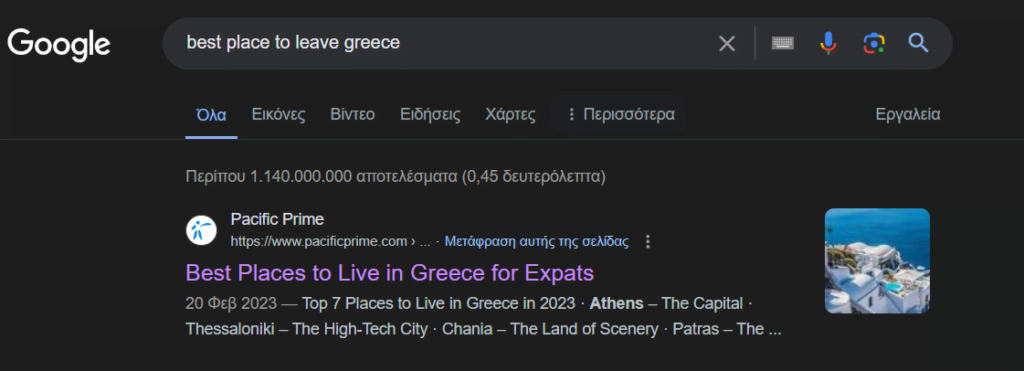
Optimizing Your Meta Description for SEO
The meta description serves as a concise summary of your webpage’s content and plays a crucial role in enticing users to click through from the search engine results page (SERP). Here are some tips for crafting an SEO-friendly meta description:
- Include Target Keywords: Incorporate your target keyword or relevant synonyms in the meta description to signal to search engines the relevance of your content to user queries. Aim to include the keyword within the first sentence of the meta description for maximum impact.
- Optimize Length: Keep your meta description between 50 and 160 characters, or approximately 400 to 920 pixels in length. Search engines typically truncate descriptions that exceed this length, so ensure that your key message is conveyed within this limit. Conversely, avoid making the description too short, as it may not provide enough context for users.
- Use Catchy Travel Words: Infuse your meta description with compelling travel-related language that piques the interest of users. Consider posing a question or including a call to action to encourage engagement and entice users to click through to your webpage.
By incorporating your target keywords, optimizing the length, and using captivating language in your meta description, you can enhance its effectiveness in driving clicks and attracting traffic to your travel website or blog.
Making the URL User and SEO-Friendly
The URL of your web page is also essential for ensuring your travel content is seen. A relevant URL will help search engines categorise your content and thus increase its likelihood of ranking in SERPs.
To optimise this, follow these steps:
- Your URL should contain your target keyword, as this tells users and search engines what the page is about.
- Ensure that your URL is short, clear, and easy to understand — avoid additional words, symbols, special characters, or numbers.
The image above shows an optimised snippet (the top snippet). The target keyword (best tropical vacation spots) appears in the URL, meta description, and page title. Additionally, both the page title and meta description are catchy and an ideal length.
Incorporating Travel Keywords Into Your Content
To optimize your content for search engines and enhance its relevance to your target audience, it’s essential to strategically integrate relevant keywords related to travel throughout your text. Here’s how you can effectively incorporate keywords into your content:
- Keyword Research: Conduct comprehensive keyword research to identify relevant terms and phrases related to your topic or main keyword. For instance, if your focus is on hotels in Hawaii on the beach, explore related keywords such as “beachfront accommodations in Hawaii,” “luxury resorts in Hawaii,” or “oceanfront hotels in Hawaii.”
- Topic Relevance: Ensure that the keywords you select are closely aligned with the theme and focus of your content. Incorporate these keywords naturally into your text, making sure they seamlessly fit within the context of your sentences and paragraphs.
- Variety and Diversity: Aim to include a variety of related keywords and phrases throughout your content to capture a broader range of search queries. This diversity not only improves the relevance of your content but also increases its visibility across different search engine results.
- Strategic Placement: Integrate keywords strategically into prominent sections of your content, such as headings, subheadings, and body paragraphs. However, avoid overstuffing your content with keywords, as this can detract from readability and quality.
- Natural Language: Write your content in a natural and conversational tone, ensuring that the incorporation of keywords feels seamless and organic. Focus on providing valuable information and engaging your audience, rather than solely prioritizing keyword optimization.
By incorporating relevant travel keywords into your content in a strategic and natural manner, you can enhance its search engine visibility, attract organic traffic, and provide valuable insights to your audience.
How to Find the Top Travel Keywords for SEO
The first place to find good travel SEO keywords is through your own expertise. If you’re an expert and know about specific destinations, then use that knowledge by writing articles based on where you’ve been or things in the industry that interest you.
To take it a step further, ensure that the search term you’re targeting is actually being searched for. There are several keyword research tools you can use to help with this. Popular picks include Ahrefs, Google Search Console, SEO Surfer, and Ubersuggest.
These tools will provide you with a wide range of practical insights to validate targeting a given keyword. Some valuable data provided include the amount of traction a keyword receives each month (pertaining to traffic and volume), whether or not the keyword will be easy to rank for, and plenty more.
By considering these insights, you will be able to create content that best aligns with your target audience’s intent.
Social media platforms like Pinterest, Instagram, Facebook, and Twitter can also provide you with a number of useful insights. These platforms are particularly helpful for understanding your target audience and the queries they’re after.
Below is a detailed guide on how to leverage each of these tools to find strong keywords and opportunities for your travel site or blog.
1. Ahrefs
Ahrefs is an SEO software suite containing a variety of tools that are great for keyword research, link building, rank tracking, and more. The keyword research tool is useful for identifying topics for your travel website and the keywords you should include and prioritise in your content.
By leveraging Ahrefs data, many marketers and SEOs have been able to achieve higher Google rankings. To make things even better, the Ahrefs blog is also an open source of tips and tricks to help you maximise the Ahrefs tools.
Note: Ahrefs is a premium tool, but it has some great features for finding more traffic. So, if SEO is your thing, then we would highly recommend taking the time and signing up for this monthly service.
2. Google Search
If you’re not looking to pay a monthly subscription fee, then do not worry — there are plenty of ways to find strong keywords and topics without spending a cent.
One of the most powerful tools is Google. You can type the query you wish to target into the search engine and see what comes up in the SERPs. It also helps to look at the “people also ask” section, as this includes additional information that users may be looking for based on their initial query.
3. Google Search Console
Aside from the Google Search function, you can also use Google Search Console (GSC). This is a free tool, but it’s beneficial to use the Adwords tool, which will be at an additional cost.
GSC helps you perform your keyword research and identify possible search campaigns. Like Ahrefs, this will provide you with estimates on how many searches a keyword is getting. Another great feature is it allows you to see which keywords you are already receiving clicks and impressions from, which can help you decide if optimising a certain page is necessary.
As GSC is primarily targeted at those running Google Ads, you can also expect additional information, like the estimated cost of targeting a given keyword.
Tip: This is an extremely beneficial tool for content optimisation. If you want to upgrade your content, look at our on-page optimisation services.
3. Social Media
Another free tool that is often overlooked when researching the best keywords for travel websites is social media. While it is not necessarily a keyword research tool, it is an excellent source for finding medium and long-tail keywords receiving high traffic volumes.
Social media platforms are constantly gathering information on people — including what they do, what they like, where they go, and what might prompt them to click. And given that the average user spends nearly three hours a day on these platforms, you can expect some good, reliable data.
Various social media platforms can be leveraged in different ways. Here is a brief look at how to use each for keyword research:
- Instagram: You can make use of hashtags to identify relevant topics. For example, if you want to post travel content, search #travel and see what other hashtags recent posts are using.
- Facebook: Use Facebook targeting options to learn about your audience or search travel-related Facebook groups for popular topics.
- Twitter: Use Twitter’s Explore function and see what topics appear under “trending” and “for you”. This will highlight various topics that people in your industry are talking about.
- Pinterest: This app predicts what content users interact with and provides related content. By searching for travel, you’re sure to find plenty of topics through pins, boards, and hashtags.
- YouTube: Use the auto-complete function to find related terms. This can be done using Google and Pinterest too. You can also check out the various travel YouTube tags.
Note that some social media platforms like Twitter will require you to be more active to reap the rewards. And if you’re looking to run a social media campaign of your own, check out our social media marketing services.
4. Keysearch
Like Ahrefs, Keysearch is a premium tool used for finding keywords. It allows you to effectively track your SEO efforts, identify keywords that you’re likely to rank for, and more.
The free version of this tool will give you some basic information, but the paid version of Keysearch ($12/month) has more features and really helps with all your SEO campaigns.
It’s not too expensive, considering the detailed insights you can receive, so we would recommend signing up for the paid version.
5. Ubersuggest
Ubersuggest is another great tool for finding keywords. It’s not as robust of a program as Ahrefs, but it has some really good features and can be helpful if you’re just getting started in SEO or have an existing website that needs help.
Ubersuggest is a free Chrome extension that provides you with a variety of insights, including keywords, monthly search volume, cost per click, and competition data. Simply enter the keyword or phrase you’re after, and it will bring up all the most popular pages for that term.
It’s also not limited to keywords specific to Google, but sites like Amazon and YouTube, too. As such, you can expect to find a variety of topics and long-tail travel keyword lists using this free tool.
6. SEO Surfer Chrome Extension
Like Ahrefs, Surfer SEO provides us with keywords to be used in our content. It takes the main keyword you enter, scans the web for competitors who are already ranking for that main keyword, and combines the keywords those competitors are using.
You will be able to see these keywords on the SEO Surfer site or by using the SEO Surfer Chrome extension. This will show you your keyword usage on the page you’re writing on and the keywords you should try to add.
In addition to words and phrases, Surfer SEO provides several other metrics to help you write and optimise your content. These include the average word count that the post should be, how many headings the post should have, what keywords to include in those headings, and more.
A Quick Note on Modifiers
Keywords are a powerful aspect of any travel site’s SEO, but tracking the modifiers is also important. These strings of words and phrases are regularly added to the initial target keyword by search engine users.
Incorporating these popular modifiers throughout your content can play a significant role in helping you rank in SERPs. Keep in mind these should still be added naturally.
The Negative Effects of Keyword Stuffing
Keyword stuffing is seen as a technique in which one tries to manipulate and improve their search rankings by overusing keywords and phrases within their content. While this was a powerful strategy of the past, it forms part of the list of Google penalties your site can endure.
There is no formula to avoid keyword stuffing. But the best practice is keeping your content user-friendly and only naturally incorporating keywords where possible.
Our Processes for Finding the Best Keywords for Travel Bloggers
If you sign up for one of our travel SEO services, you may want some assistance finding related keywords to your travel niche. These processes require an analytical approach to identify already written content and find the best possible options for future content.
Here’s a basic breakdown of each process and the key differences between them.
1. Topic Mine
A topic mine helps you identify easy-to-rank keywords that can bring in the highest possible traffic to your site. It entails having an already established broad keyword such as “France itinerary”. Keep in mind there may be related keywords that could help you find more topics to write about.
An example, if the target keyword is “France itinerary”, you may want to add “France travel” or “France Holiday” to your search.
Once we have the main topics, we use the Ahrefs content explorer tool to find high-traffic, easy-to-rank keywords about this topic. We then systematically identify the best topics to write on and prioritise them within a formatted sheet.
2. Phrase Match Mine
A phrase match mine is fairly similar to a topic mine. Usually, there is a predetermined series you will want to write about, such as “Luxury hotels in X” or “Best places to visit in Y”.
Using the Ahrefs phrase match tool, we are able to find all the best keywords matching the given phrases. This process helps you identify keywords that your site is most likely to rank for within a particular series.
This way, you are not wasting time and money writing high-difficulty topics.
3. Competitor Mine
Our last and possibly most popular process is the competitor mine. As the name suggests, this is a process in which you find all the high-traffic, easy-to-rank posts that your competitors are ranking for.
We usually ask for your top three competitors or perform a quick site search on Ahrefs to identify your top competitors. We then identify and compare these three competitor sites and find the best topics your site can rank for.
What Are the Best Travel Keywords for the Travel Industry?
You no longer need to wonder what are the best keywords for travel websites. From knowing the different types of keywords to the plethora of tools mentioned in this guide, your SEO campaigns are about to hit new heights.
Whether you use Ahrefs, SEO Surfer, Google, or social media, you’re sure to find some of the most searched queries within the travel space.
So what are you waiting for? Begin with effective keyword research to find high-traffic topics and keywords relating to various destinations, activities, and attractions, and start growing your travel blog!
What’s the next step? Book a marketing consultation session with us and start figuring out how your website can reach all the right people.

